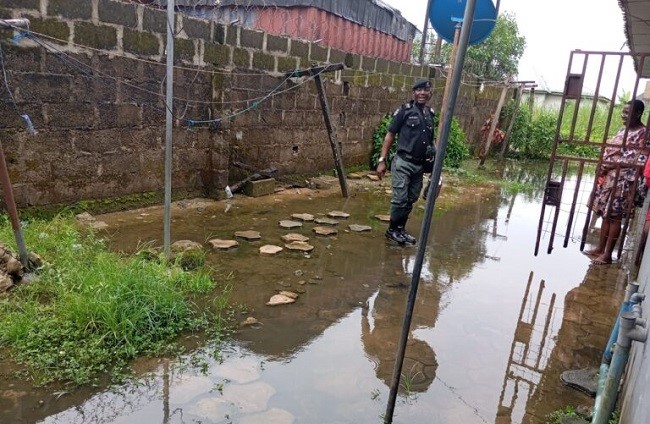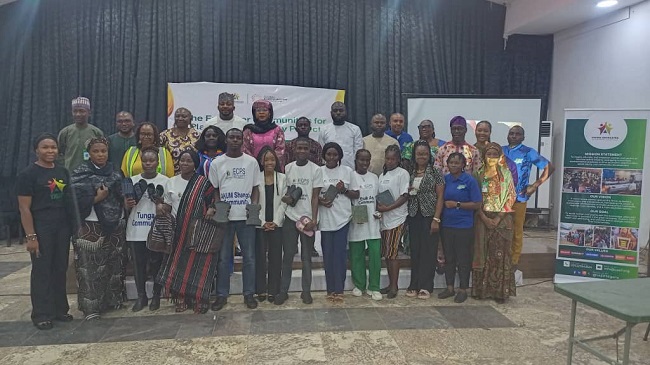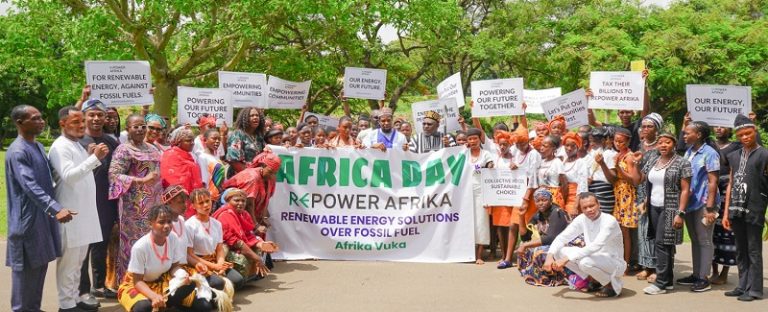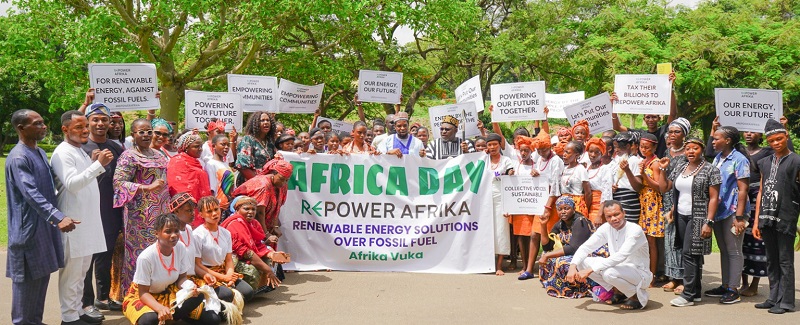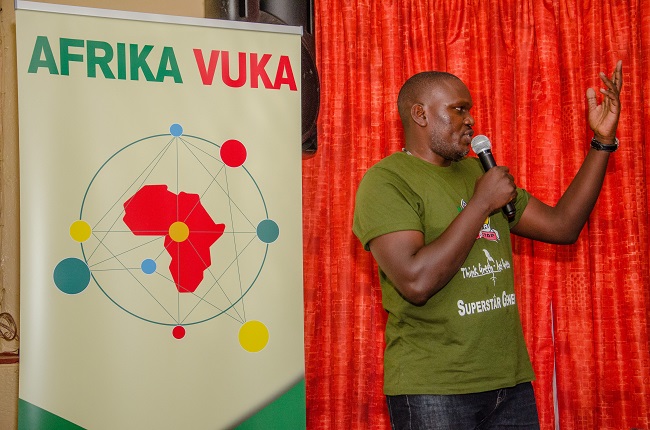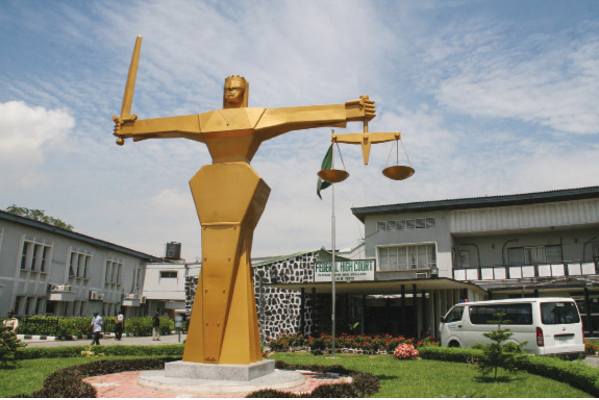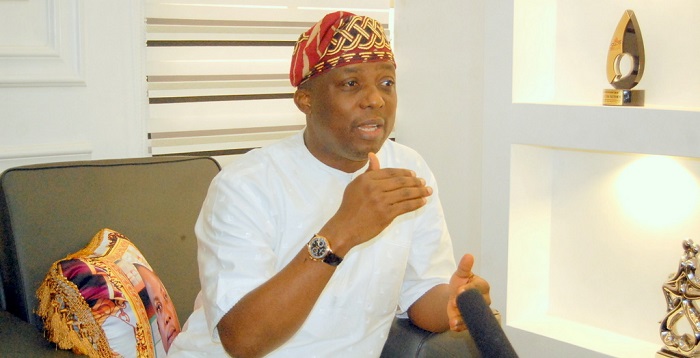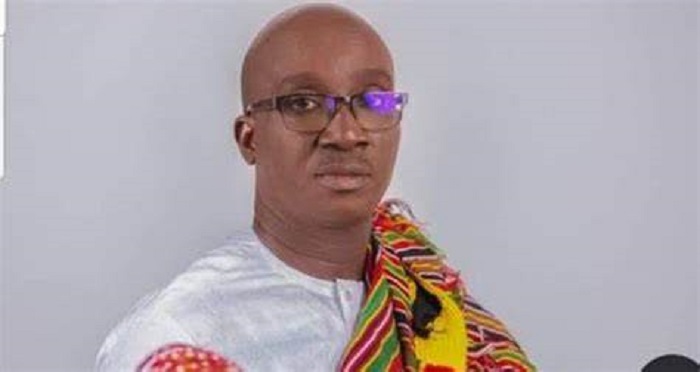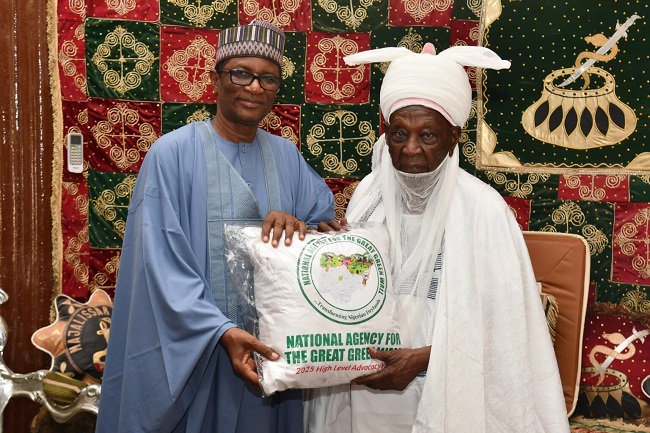Climate experts, policymakers, scholars, and civil society actors gathered at the National Universities Commission (NUC) in Abuja from May 22 to 23, 2025, for a national workshop focused on scaling up climate resilience and promoting nature-based solutions across Nigerian communities.
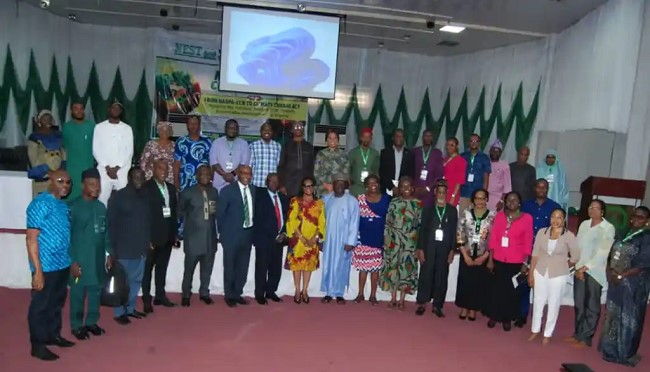
In his welcome address, Professor Chinedum Nwajiuba, Chairman of the Board of Directors at the Nigerian Environmental Study/Action Team (NEST), set the tone for the event. “We must not be seen to be talking too much but doing too little,” he cautioned, emphasising the need for action over rhetoric. He also reflected on NEST’s 38-year legacy in environmental advocacy and sustainable development.
Nwajiuba expressed appreciation to the workshop’s sponsors – the Pan African Climate Justice Alliance (PACJA) and the African Coalition for Sustainable Energy and Access (ACSEA) – and acknowledged the participation of key stakeholders from the Federal Ministry of Environment, the National Council on Climate Change (NCCC), and various development partners.
The workshop also served as a curtain-raiser for NEST’s two-day national conference, which centred on strengthening inclusive advocacy, enhancing community resilience, and promoting environmental stewardship across Nigeria’s diverse landscapes.
Representing the Minister of Environment, Dr Iniobong Abiola-Awe, Director of the Department of Climate Change, reaffirmed the Ministry’s commitment to initiatives aligned with Nigeria’s Nationally Determined Contributions (NDCs) under the Paris Agreement.
Speaking at the NEST 2025 Conference, Dr. Abiola-Awe delivered a policy address on “The NASPA-CCN and the Climate Change Act,” stressing the urgency of proactive adaptation measures to safeguard Nigeria’s ecosystems and economic stability.
“Climate change is a global challenge with local consequences,” she said. “We must build adaptive capacity now, especially for the most vulnerable populations.”
She traced Nigeria’s climate policy journey from the National Adaptation Strategy and Plan of Action on Climate Change for Nigeria (NASPA-CCN) in 2011 to the enactment of the Climate Change Act in 2021, which now serves as the nation’s legal anchor for climate action. With support from the Green Climate Fund, she added that the Ministry has developed a draft National Adaptation Plan (NAP) and conducted vulnerability assessments to identify climate hotspots across the country.
“Incorporating conflict sensitivity into climate planning is essential,” she noted, highlighting the links between resource scarcity and insecurity in some regions.
Commending NEST’s unwavering commitment, she reiterated the Ministry’s readiness to drive inclusive, climate-resilient development through strategic partnerships.
“As we look to the future,” she concluded, “let us plan intentionally and empower communities to adapt to uncertainty. Together, we can build a sustainable Nigeria that leaves no one behind.”
In his keynote address, Professor Haruna Kuje Ayuba, Vice-Chancellor of Bingham University and Chairman of the Occasion, welcomed participants and offered a deep reflection on NEST’s legacy.
“It is an honour to welcome you all to this conference organised by the Nigerian Environmental Study Action Team (NEST),” he began. “For over 37 years, NEST has been a key catalyst in promoting climate change awareness, advocacy, and action within Nigeria’s environmental agenda. Its work has helped shape policies, mobilise communities, and foster a culture of environmental responsibility.”
He noted that NEST’s extensive research on climate impacts in Nigeria led to the formulation of the National Adaptation Strategy and Plan of Action on Climate Change in Nigeria (NASPA-CCN) in 2012, a pivotal document that laid the groundwork for subsequent legislation.
“As a watchdog,” Professor Ayuba continued, “NEST has monitored environmental policies, projects, and practices, holding both government and corporate entities accountable for their roles in sustainability. Through advocacy and research, it contributed to the development of Nigeria’s legal frameworks on climate change, notably the enactment of the Climate Change Act in 2021 and other institutional reforms.”
Speaking on the conference theme – “From NASPA-CCN to Climate Change Act in Nigeria: Mapping the Pathway Beyond 2030 Towards Sustainable Development in Nigeria” – Professor Ayuba described the theme as a testament to Nigeria’s evolving climate commitment.
“This journey, from the voluntary framework of NASPA-CCN to a binding legal structure under the Climate Change Act, illustrates a progressive dedication to institutionalising climate action.”
He observed that Nigeria has made critical milestones in its climate journey: from signing the Paris Agreement in 2015 to submitting its Nationally Determined Contributions (NDCs), and formulating its Climate Finance Strategy (2018) and National Climate Change Policy (2021). These efforts culminated in the Climate Change Act, which now provides a comprehensive legal foundation for climate governance.
“However, legislation is only the beginning,” Professor Ayuba emphasised. “The real work lies in implementation, stakeholder engagement, and aligning climate policies with national development priorities.”
He further urged that as Nigeria looks beyond 2030, it must map a clear, inclusive, and actionable pathway, integrating climate considerations into agriculture, energy, urban development, and health sectors. “Our goal must be to harness this momentum and build a future where economic growth complements environmental sustainability.”
Professor Ayuba called for united action across government, academia, civil society, and the private sector. “Together, we can translate policies into impactful actions that secure Nigeria’s climate resilience and sustainable development for generations to come.”
The Minister of Agriculture and Food Security, who was represented by Dr. Wasiu Adedokun, commended the Nigerian Environmental Study Action Team (NEST) for its longstanding commitment to promoting climate-smart agriculture. He particularly praised NEST’s efforts in equipping farmers with adaptive techniques to withstand erratic weather patterns and environmental stressors.
Dr. Wasiu also acknowledged the outstanding contributions of Emeritus Professor David Okali, immediate past Chairman of the NEST Board, describing him as a “trailblazer whose scholarly work and leadership have left a lasting imprint on Nigeria’s environmental governance and national development.”
In a goodwill message delivered at the conference, Sam Onuigbo, a key figure in Nigeria’s climate policy landscape and sponsor of the Climate Change Act 2021, underscored the importance of education in climate adaptation efforts. He called on all stakeholders, especially the education sector, to integrate climate change lessons into curricula at all levels of schooling, stressing that environmental literacy is essential for building long-term resilience and shaping future leaders capable of responding to climate realities.
Delivering a keynote titled “NEST and Climate Change Governance in Nigeria: Towards and Beyond 2030,” Dr Peter Tarfa, former Director of the Department of Climate Change, described climate change as a serious threat to Nigeria’s socio-economic stability. He warned that without effective governance, the country risks significant developmental setbacks.
“Effective governance is not limited to government alone but involves a broad framework of state and non-state actors,” he noted.
Dr Tarfa outlined the major players in Nigeria’s climate architecture – government agencies, non-governmental organisations, academia, the media, and international partners – emphasising the need for collaborative synergy.
He spotlighted the increasing toll of climate-related impacts, from desertification in the North to sea-level rise in the South, with cascading effects on agriculture, public health, and national security.
Nigeria’s climate governance framework, he said, must integrate policy, legal, and institutional components. “Legislation provides the regulatory tools; institutions offer the technical backbone. The real challenge lies in execution.”
Dr Tarfa praised NEST’s historical contributions, especially the development of NASPA-CCN, which has guided subsequent national climate strategies.
On Nigeria’s 2030 climate targets, he reaffirmed the commitment to reducing greenhouse gas emissions by 20 per cent unconditionally and 47 per cent conditionally. Post-2030 priorities, he added, should include mainstreaming climate concerns into national planning, fostering innovation, and expanding access to climate finance.
He also identified persistent challenges such as weak institutional capacity, poor inter-agency coordination, inadequate funding, and limited public awareness. “Nigeria has the frameworks,” he stressed, “but our Achilles’ heel is implementation.”
A compelling intervention came from Dr E. D. Oruonye of Taraba State University, who delivered a paper on the role of the private sector in financing climate resilience beyond 2030. He noted Nigeria’s acute vulnerability to climate shocks and emphasised the need to diversify sources of climate finance.
While acknowledging progress since NASPA-CCN and the passage of the 2021 Climate Change Act, Oruonye identified the absence of robust financial mechanisms as a major obstacle. “Nigeria needs over $177 billion by 2030 to meet its climate goals,” he said, citing United Nations Environment Programme (UNEP) estimates.
He observed that less than 20 per cent of climate finance inflows between 2015 and 2020 came from domestic private sources – a critical shortfall. “Without deliberate efforts to harness private capital, our ambitions will remain mere intentions,” he warned.
Key barriers to private sector engagement, he explained, include limited access to finance, policy inconsistency, weak project pipelines, and insufficient institutional capacity. Regulatory uncertainty and the absence of reliable climate risk data further deter investment.
Oruonye advocated for Public-Private Partnerships (PPPs) as a sustainable pathway forward, suggesting that strategic incentives and legal safeguards could unlock investments in climate-resilient infrastructure and renewable energy.
He also proposed the establishment of a climate finance platform to pool and de-risk private capital for both adaptation and mitigation projects. “We must move from planning to pipeline,” he urged.
Delivering another keynote titled “The Impact of Livelihood Diversification on Climate Change Resilience among Rural Households in Kebbi State,” agricultural economist T. A. Manga described climate change as “arguably the most significant environmental challenge of the 21st century,” with sweeping effects on food security, water access, and livelihoods.
Manga explained that Sub-Saharan Africa is particularly vulnerable due to its dependence on climate-sensitive sectors. In Kebbi, prolonged droughts and erratic rainfall have devastated farming and fishing communities.
“Rural households are increasingly turning to diversified livelihoods to cope with climate stressors,” he noted. He defined livelihood diversification as the development of multiple income streams and social networks that strengthen resilience to climate shocks.
His research found that households with varied income sources were more food-secure and financially stable. He called for enhanced rural credit access, low-interest loans, and infrastructure investments in roads, water, electricity, and ICT to foster non-farm income opportunities.
He also presented findings from a separate study on “Climate-Proofing Agriculture for Sustainable Food Security in Southern Taraba.” With over 706 of Nigeria’s rural population reliant on agriculture, he said, the sector now faces serious threats from flooding, temperature rise, and rainfall irregularities.
“These climatic threats are undermining traditional farming systems,” he warned, advocating for the adoption of drought-tolerant crops, conservation agriculture, and modern irrigation technologies.
Manga called for stronger adaptation policies, institutional coordination, and targeted support for smallholder farmers through financial assistance, research investments, and capacity building.
Participants from state environment ministries, community-based organisations, and the media discussed nature-based solutions spearheaded by local communities. Case studies from Abia and Taraba states showcased successful initiatives in afforestation, wetland restoration, and climate-smart agriculture.
Professor Emma Nzegbule, NEST’s Project Coordinator, outlined implementation strategies for ongoing projects funded by ACSEA and PACJA. Nzegbule urged state governments and NGOs to replicate models with demonstrated impact.
Professor Nwajiuba concluded the day’s deliberations with a rallying call for unity and innovation. “We must move from events to enduring impact. Every action count,” he said.
The conference brought together researchers, civil society actors, development partners, and government officials under a shared goal: to build a climate-resilient Nigeria. As the nation grapples with the escalating realities of climate change, the message from this gathering was clear – climate governance is no longer optional. It is imperative.
By Einstein Chukwuu


